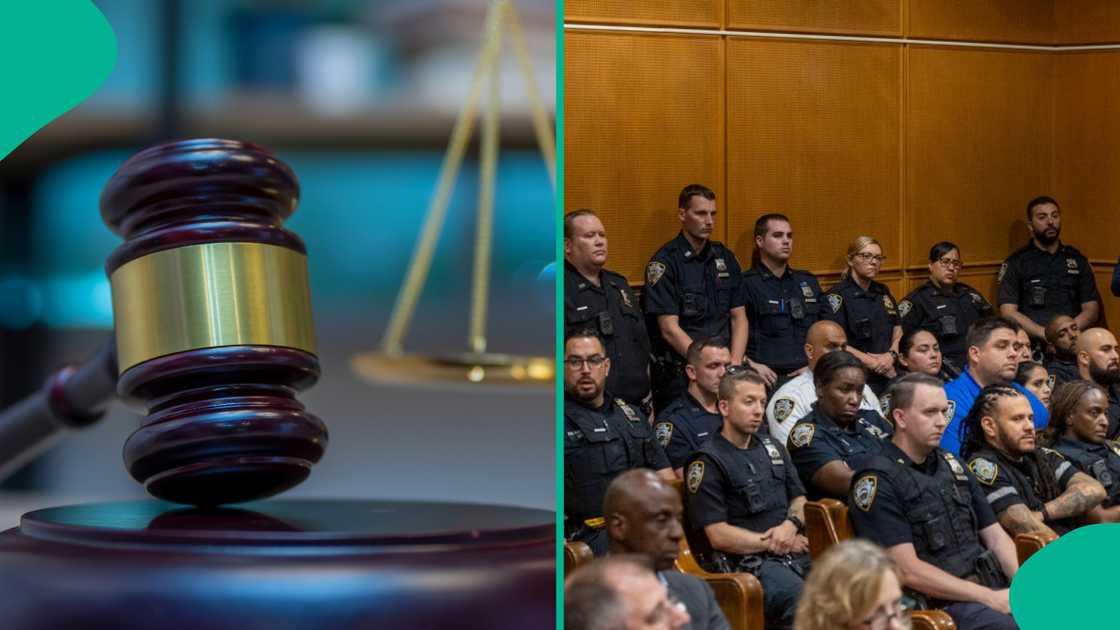AI Brings Dead Man’s Words to Life in Court, What He Said Released
- In a groundbreaking moment for the U.S. justice system, artificial intelligence was used to recreate a victim's voice for a sentencing hearing, offering a powerful message of forgiveness
- Stacey Wales, struggling to find the right words for her victim impact statement, turned to AI technology to let her late brother, Christopher Pelkey, speak for himself
- The AI-generated video, played in court, provided emotional closure for Wales and her family while delivering an unforgettable message to the man responsible for Pelkey’s death
For two years, Stacey Wales had been preparing her victim impact statement for the sentencing hearing of the man who killed her brother, Christopher Pelkey, in a road rage incident in Chandler, Arizona.
However, when the moment arrived, she found herself unable to write her statement. Struggling to find the right words, she recalled her brother’s voice in her mind, guiding her on what he would have said, according to NPR.

Source: Getty Images
Inspired by this, Wales decided to use artificial intelligence to create a video of her late brother delivering his own impact statement.
On Thursday, Wales played the AI-generated video in court—marking what experts believe is the first known use of this technology in a U.S. sentencing hearing to recreate a deceased victim’s statement.
Search for the right words
Wales had anticipated this moment since the initial trial in 2023, but due to procedural issues, the case was retried in 2025. The sentencing hearing was an emotional milestone for Wales, who had remained composed during the trials to avoid influencing the jury.
She was advised to humanise Pelkey and present a full picture of the person he was. Determined to do so, Wales reached out to individuals from her brother’s life, including his teachers, high school prom date, and fellow soldiers from his time in Iraq and Afghanistan. In total, she gathered 48 victim impact statements before crafting her own.
Caught between expressing her emotions and considering what the judge might want to hear, Wales admitted she was not ready to forgive the shooter—unlike Pelkey, whose strong belief in forgiveness guided his life. Ultimately, she chose to write from her brother’s perspective.
Creating the AI-generated statement
Wales turned to her husband, Tim, for assistance in producing the video. Alongside their business partner, Scott Yentzer, they faced the challenge of using AI tools to bring Pelkey’s likeness and voice to life.
Despite lacking a long, clear audio recording of Pelkey’s voice and a suitable frontal photograph, they managed to create a convincing 4.5-minute video. AI technology digitally removed the sunglasses from Pelkey’s hat and refined his beard, ensuring the avatar closely resembled him.
Recreating Pelkey’s laughter proved especially difficult due to background noise in existing audio clips. The process prompted Wales to consider her own mortality—leading her to record a nine-minute video of herself talking and laughing for future reference.
Presenting the AI video in court
Initially, Wales’ victim rights attorney, Jessica Gattuso, had reservations about showing the AI-generated video in court. She was uncertain how the judge and others would react.
However, after viewing it, she felt convinced of its impact and supported its presentation.
During the sentencing hearing, ten people spoke in support of Pelkey, with his AI-generated video concluding the testimonies.
"Hello. Just to be clear for everyone seeing this, I'm a version of Chris Pelkey recreated through AI that uses my picture and my voice profile," the AI avatar stated.
Pelkey’s digital representation expressed gratitude to those who had contributed impact statements and attended the hearing.
Addressing his shooter, Gabriel Paul Horcasitas, the AI avatar said, "It is a shame we encountered each other that day in those circumstances. In another life, we probably could have been friends. I believe in forgiveness and in God who forgives. I always have and I still do."
The video concluded with Pelkey’s AI-generated voice encouraging people to love one another and live life to the fullest. "Well, I'm gonna go fishing now. Love you all. See you on the other side," it stated.

Source: Getty Images
Judge’s reaction and healing process
Neither the defense nor the judge opposed the video’s presentation. Judge Todd Lang openly expressed appreciation for the AI creation, stating, "I loved that AI. Thank you for that."
He recognised the family’s emotional journey, noting that although Wales sought the maximum sentence, she allowed Pelkey to speak from his heart in the video.
Horcasitas received 10.5 years in prison.
For Wales, the AI video proved to be an essential tool in the healing process. Her teenage son was able to hear his uncle say goodbye, and she herself finally found the strength to look through photographs of her brother.
Reflecting on the experience, Wales shared, "Going through this process of AI and what he’d sound like and trimming his beard and inserting laughs and all these other things, it was very cathartic and it was part of the healing process."
ChatGPT dragged to US court over AI copyright

Read also
Rethinking shame: Why women leaving abusive marriages deserve support, by Lady Jane Kalu Ndukwe
Legit.ng earlier reported that US comedian Sarah Silverman and two other authors have sued Open AI over copyright infringement in the latest pushback by creatives since the company's release of ChatGPT took the world by storm.
The plaintiffs accuse the San Francisco company of using their works to train their artificial intelligence models without permission, adding to a series of cases that could complicate the development of tech world's biggest new trend.
Source: Legit.ng






